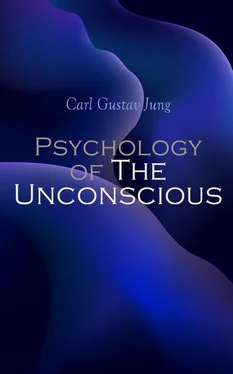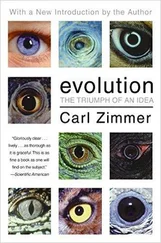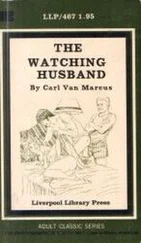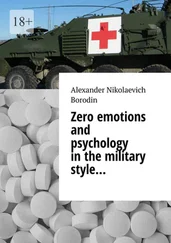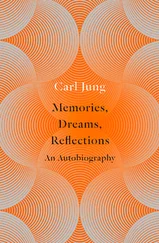Carl Jung - Psychology of The Unconscious
Здесь есть возможность читать онлайн «Carl Jung - Psychology of The Unconscious» — ознакомительный отрывок электронной книги совершенно бесплатно, а после прочтения отрывка купить полную версию. В некоторых случаях можно слушать аудио, скачать через торрент в формате fb2 и присутствует краткое содержание. Жанр: unrecognised, на английском языке. Описание произведения, (предисловие) а так же отзывы посетителей доступны на портале библиотеки ЛибКат.
- Название:Psychology of The Unconscious
- Автор:
- Жанр:
- Год:неизвестен
- ISBN:нет данных
- Рейтинг книги:4 / 5. Голосов: 1
-
Избранное:Добавить в избранное
- Отзывы:
-
Ваша оценка:
- 80
- 1
- 2
- 3
- 4
- 5
Psychology of The Unconscious: краткое содержание, описание и аннотация
Предлагаем к чтению аннотацию, описание, краткое содержание или предисловие (зависит от того, что написал сам автор книги «Psychology of The Unconscious»). Если вы не нашли необходимую информацию о книге — напишите в комментариях, мы постараемся отыскать её.
Psychology of The Unconscious — читать онлайн ознакомительный отрывок
Ниже представлен текст книги, разбитый по страницам. Система сохранения места последней прочитанной страницы, позволяет с удобством читать онлайн бесплатно книгу «Psychology of The Unconscious», без необходимости каждый раз заново искать на чём Вы остановились. Поставьте закладку, и сможете в любой момент перейти на страницу, на которой закончили чтение.
Интервал:
Закладка:
“As a rule, the links of this sort of irresponsible thinking, which are accidentally bound together, are empirically concrete things, not abstractions.”
We can, in the following manner, complete these definitions of William James. This sort of thinking does not tire us; it quickly leads us away from reality into phantasies of the past and future. Here, thinking in the form of speech ceases, image crowds upon image, feeling upon feeling; more and more clearly one sees a tendency which creates and makes believe, not as it truly is, but as one indeed might wish it to be. [28]The material of these thoughts which turns away from reality, can naturally be only the past with its thousand memory pictures. The customary speech calls this kind of thinking “dreaming.”
Whoever attentively observes himself will find the general custom of speech very striking, for almost every day we can see for ourselves how, when falling asleep, phantasies are woven into our dreams, so that between the dreams of day and night there is not so great a difference. Thus we have two forms of thinking— directed thinking and dream or phantasy thinking . The first, working for communication with speech elements, is troublesome and exhausting; the latter, on the contrary, goes on without trouble, working spontaneously, so to speak, with reminiscences. The first creates innovations, adaptations, imitates reality and seeks to act upon it. The latter, on the contrary, turns away from reality, sets free subjective wishes, and is, in regard to adaptation, wholly unproductive. [29]
Let us leave aside the query as to why we possess these two different ways of thinking, and turn back to the second proposition, namely, how comes it that we have two different ways of thinking? I have intimated above that history shows us that directed thinking was not always as developed as it is at present. In this age the most beautiful expression of directed thinking is science, and the technic fostered by it. Both things are indebted for their existence simply to an energetic education in directed thinking. At the time, however, when a few forerunners of the present culture, like the poet Petrarch, first began to appreciate Nature understandingly [30]there was already in existence an equivalent for our science, to wit, scholasticism. [31]This took its objects from the phantasies of the past, and it gave to the mind a dialectic training in directed thinking. The only success which beckoned the thinker was rhetorical victory in disputation, and not a visible transformation of reality.
The subjects of thinking were often astonishingly phantastical; for example, questions were discussed, such as how many angels could have a place on the point of a needle? Whether Christ could have done his work of redemption equally well if he had come into the world as a pea? The possibility of such problems, to which belong the metaphysical problems in general, viz., to be able to know the unknowable, shows us of what peculiar kind that mind must have been which created such things which to us are the height of absurdity. Nietzsche had guessed, however, at the biological background of this phenomenon when he spoke of the “beautiful tension” of the Germanic mind which the Middle Ages created. Taken historically, scholasticism, in the spirit of which persons of towering intellectual powers, such as Thomas of Aquinas, Duns Scotus, Abélard, William of Occam and others, have labored, is the mother of the modern scientific attitude, and a later time will see clearly how and in what scholasticism still furnishes living undercurrents to the science of to-day. Its whole nature lies in dialectic gymnastics which have raised the symbol of speech, the word, to an almost absolute meaning, so that it finally attained to that substantiality which expiring antiquity could lend to its logos only temporarily, through attributes of mystical valuation. The great work of scholasticism, however, appears to be the foundation of firmly knitted intellectual sublimation, the conditio sine qua non of the modern scientific and technical spirit.
Should we go further back into history, we shall find that which to-day we call science, dissolved into an indistinct cloud. The modern culture-creating mind is incessantly occupied in stripping off all subjectivity from experience, and in finding those formulas which bring Nature and her forces to the best and most fitting expression. It would be an absurd and entirely unjustified self-glorification if we were to assume that we are more energetic or more intelligent than the ancients—our materials for knowledge have increased, but not our intellectual capacity. For this reason, we become immediately as obstinate and insusceptible in regard to new ideas as people in the darkest times of antiquity. Our knowledge has increased but not our wisdom. The main point of our interest is displaced wholly into material reality; antiquity preferred a mode of thought which was more closely related to a phantastic type. Except for a sensitive perspicuity towards works of art, not attained since then, we seek in vain in antiquity for that precise and concrete manner of thinking characteristic of modern science. We see the antique spirit create not science but mythology. Unfortunately, we acquire in school only a very paltry conception of the richness and immense power of life of Grecian mythology.
Therefore, at first glance, it does not seem possible for us to assume that that energy and interest which to-day we put into science and technic, the man of antiquity gave in great part to his mythology. That, nevertheless, gives the explanation for the bewildering changes, the kaleidoscopic transformations and new syncretistic groupings, and the continued rejuvenation of the myths in the Grecian sphere of culture. Here, we move in a world of phantasies, which, little concerned with the outer course of things, flows from an inner source, and, constantly changing, creates now plastic, now shadowy shapes. This phantastical activity of the ancient mind created artistically par excellence . The object of the interest does not seem to have been to grasp hold of the “how” of the real world as objectively and exactly as possibly, but to æsthetically adapt subjective phantasies and expectations. There was very little place among ancient people for the coldness and disillusion which Giordano Bruno’s thoughts on eternity and Kepler’s discoveries brought to modern humanity. The naïve man of antiquity saw in the sun the great Father of the heaven and the earth, and in the moon the fruitful good Mother. Everything had its demons; they animated equally a human being and his brother, the animal. Everything was considered according to its anthropomorphic or theriomorphic attributes, as human being or animal. Even the disc of the sun was given wings or four feet, in order to illustrate its movement. Thus arose an idea of the universe which was not only very far from reality, but was one which corresponded wholly to subjective phantasies.
We know, from our own experience, this state of mind. It is an infantile stage. To a child the moon is a man or a face or a shepherd of the stars. The clouds in the sky seem like little sheep; the dolls drink, eat and sleep; the child places a letter at the window for the Christ-child; he calls to the stork to bring him a little brother or sister; the cow is the wife of the horse, and the dog the husband of the cat. We know, too, that lower races, like the negroes, look upon the locomotive as an animal, and call the drawers of the table the child of the table.
As we learn through Freud, the dream shows a similar type. Since the dream is unconcerned with the real condition of things, it brings the most heterogeneous matter together, and a world of impossibilities takes the place of realities. Freud finds progression characteristic of thinking when awake; that is to say, the advancement of the thought excitation from the system of the inner or outer perception through the “endopsychic” work of association, conscious and unconscious, to the motor end; that is to say, towards innervation. In the dream he finds the reverse, namely, regression of the thought excitation from the preconscious or unconscious to the system of perception, by the means of which the dream receives its ordinary impression of sensuous distinctness, which can rise to an almost hallucinating clearness. The dream thinking moves in a retrograde manner towards the raw material of memory. “The structure of the dream thoughts is dissolved during the progress of regression into its raw material.” The reanimation of the original perception is, however, only one side of regression. The other side is regression to the infantile memory material, which might also be understood as regression to the original perception, but which deserves especial mention on account of its independent importance. This regression might, indeed, be considered as “historical.” The dream, according to this conception, might also be described as the substitute of the infantile scene, changed through transference into the recent scene .
Читать дальшеИнтервал:
Закладка:
Похожие книги на «Psychology of The Unconscious»
Представляем Вашему вниманию похожие книги на «Psychology of The Unconscious» списком для выбора. Мы отобрали схожую по названию и смыслу литературу в надежде предоставить читателям больше вариантов отыскать новые, интересные, ещё непрочитанные произведения.
Обсуждение, отзывы о книге «Psychology of The Unconscious» и просто собственные мнения читателей. Оставьте ваши комментарии, напишите, что Вы думаете о произведении, его смысле или главных героях. Укажите что конкретно понравилось, а что нет, и почему Вы так считаете.
